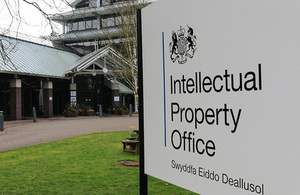UK-China copyright week promotes IP protection across borders
Firms from the UK’s world-leading creative industries sector will travel to China, with officials from the UK Intellectual Property Office, to strengthen relations with Chinese counterparts.

UK-China copyright week takes place from 31 August to 4 September 2015 and is the latest in a series of high level international events to promote and protect intellectual property across borders.
The UK Intellectual Property Office has coordinated a week long programme of events in conjunction with the National Copyright Administration of China (NCAC).
Headed by Dr Ros Lynch, the UK IPO’s Director of Copyright and Enforcement, the delegation including representatives of the UK’s world class creative industries will participate in events in Beijing, Hangzhou and Shanghai.
They will share best practice on key areas of reform such as collective licensing, extended collective licensing, broadcasting & related rights, orphan works, copyright enforcement, enforcement of other IP rights and to engage with copyright creators and owners from both the UK and China.
Baroness Neville-Rolfe, UK Intellectual Property Minister, said:
Our world class film, music and games industries enjoy huge success in China. This week of activity will allow UK business to meet Chinese officials, to advance reform and renew the momentum for the strengthening of Chinese copyright law.
Richard Mollet, Chief Executive of The Publishers Association said:
UK-China Copyright week is an excellent opportunity to reinforce our mutual understanding of the importance of intellectual property while also strengthening economic and cultural relations between the UK and China.
Copyright underpins success in publishing and all other creative industries. UK physical book export sales to mainland China increased 6% to £57 million in 2014 and it is vital that we create an environment to protect this market and foster future growth.
China is a key trading partner for the UK and a market of enormous potential for the creative industries.
China has the fourth largest TV market in the world and the third largest radio market. China has seen a boom in its online entertainment sector and is likely become one of the world’s top 10 music markets over the next few years.
The Chinese broadcasting industry is estimated to grow strongly over the next 5 years to over US $11.5 billion (estimated £7.3 billion) there is still tremendous potential for further growth.
China’s copyright law is currently being revised across a range of areas including: digital environment & internet service providers; sound recordings & public performance rights; works of applied art ownership provisions for films; limitations & exceptions (in particular regarding software); orphan works; compulsory licences & collective management; exercise of rights; droit-de-suite/artist resale right; technological protection measures; and civil infringement and administrative enforcement.
Copyright Week will provide a unique opportunity for businesses and policymakers from both countries to engage directly with government officials and discuss these revisions in depth. Discussions will aim to maximise the benefits of an effective copyright regime.
Notes for editors
-
Media enquiries should be directed to BIS press office (020 7215 5080).
-
Interested UK stakeholders and businesses are welcome to attend UK-China Copyright Week and other events taking place in China during the first week of September 2015. For more information on the activities or on UK-China engagement on intellectual property please contact Tom.Duke2@fco.gov.uk.
-
Full details of UK-China Copyright Week are available.
-
Amendments to the Chinese copyright law. The National Copyright Administration of China (NCAC) passed proposed revisions to the Copyright Law to State Council Legislative Affairs Office (SCLAO) at the end of 2012. In February 2013, SCLAO ran a limited consultation exercise with a small number of domestic and international stakeholders. The IPO held a roundtable with UK stakeholders (publishing, music) to ensure their views were reflected in the submission of the European Chamber of Commerce in China (EUCCC). We understand that the NCAC helped SCLAO process the responses, completing their work in July 2013.
-
The law is currently under review by the National People’s Congress, and implementation of the changes are expected in 2016.